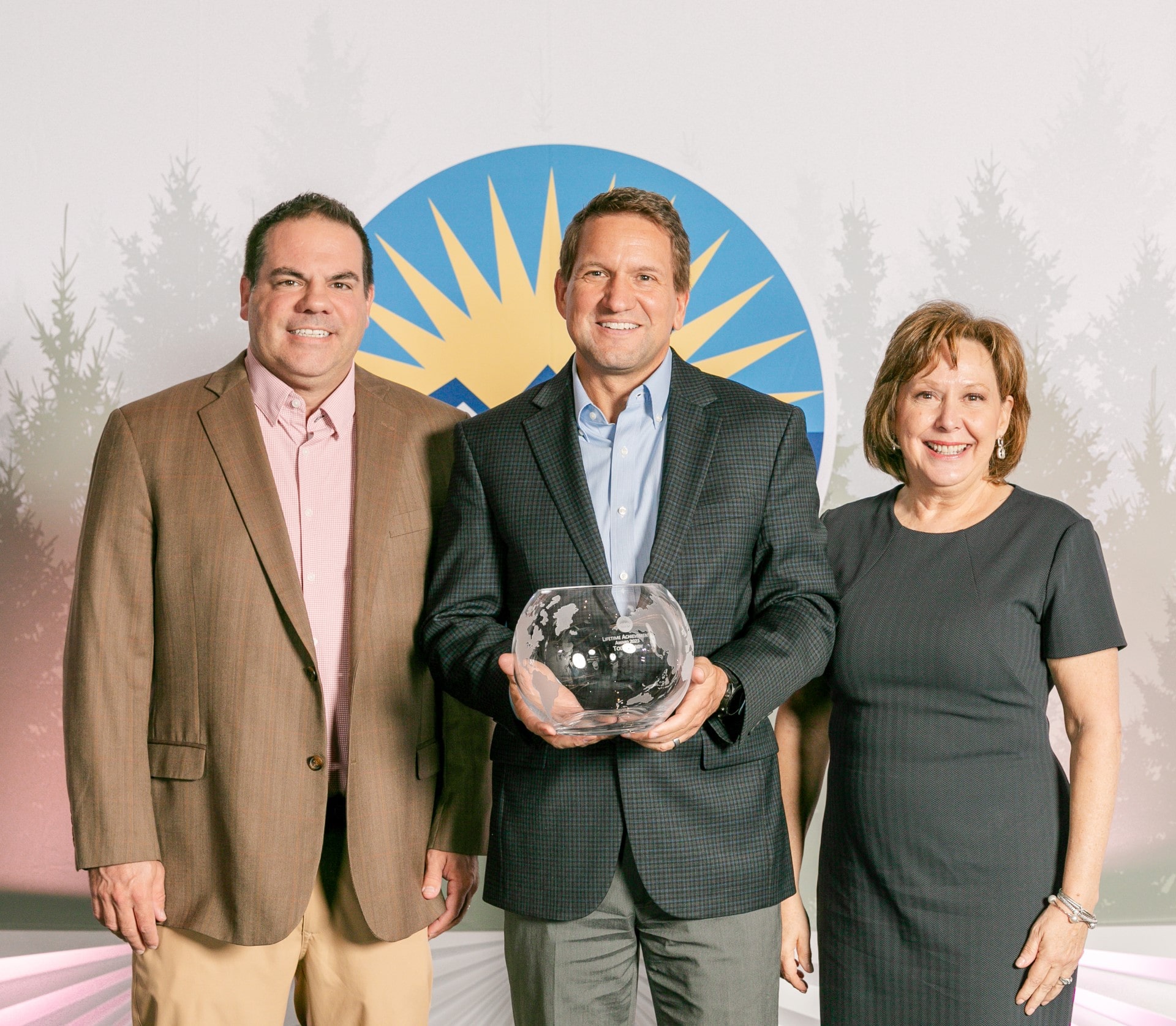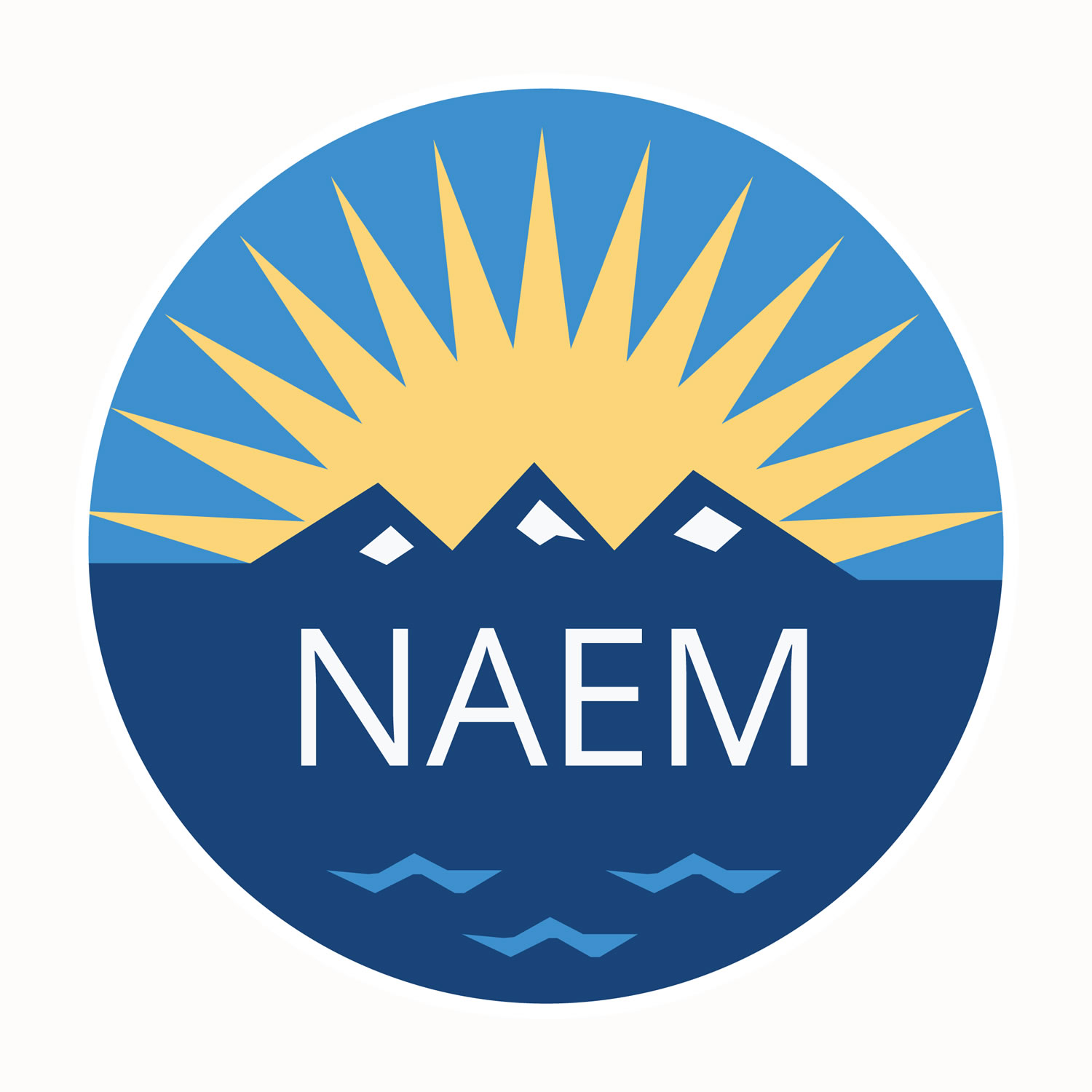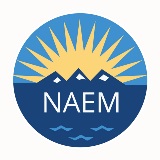Leadership Wisdom from Intel’s Todd Brady, the 2023 NAEM Lifetime Achievement Award Recipient

In a recent conversation with Todd Brady, Intel’s Chief Sustainability Officer, and Vice President of Global Public Affairs, the Green Tie blog learned a bit more about Todd’s leadership style, what makes him proud to work for Intel, and how he engages top executives in sustainability. This interview has been edited for length and clarity.
What’s surprised you most as you journeyed to the C-Suite?
TB: I was a new college graduate when I started working for Intel. When you first start out you look at the people in the C suite and you think: they're perfect. They walk on water. How can I ever measure up to that? What I’ve learned as my career progressed and as I've engaged with those across the company is that at the end of the day, we're all human. We're all people. We all have our strengths and our weaknesses, and we shouldn't dwell on our weaknesses. Instead, we should focus on how we can get better and move forward. Because even tremendous people are flawed in some way. Don't focus on your flaws, focus on what you bring to the table, your strengths. That's helped me throughout my career, and I hope it encourages others to do the same.
Under your leadership, Intel has delivered incredible results. What do you consider the most impactful professional accomplishment to date?
TB: I would say those items that we helped initiate, lead, and change the industry. For example, there's been a variety of different green chemistry initiatives we worked on with industry peers over the years to phase out the use of certain substances or chemicals. Intel was at the forefront of phasing out the use of lead in electronics and that was a huge undertaking.
We were one of the first big purchasers of renewable energy and actually became the largest purchaser of renewable energy in the US in 2008. That was before many companies were buying renewable energy. Fast forward to today and there's a lot of companies purchasing renewable electricity. We had the foresight to say: We need to move in this direction, we need to invest, and hope our investments will encourage others to move the market in that direction. More recently we set a goal to be net positive water. Again, we were one of the first companies to move in that direction and we recently achieved that for the US and India where we put more water back into the aquifer than we remove.
These are the types of things I'm most proud of — when we have been forward-looking. When we are not only concerned with where we are today, but also where we need to be a decade from now. And not only focused on how we get there, but also on how we can pull others along with us to achieve those goals.
You've successfully persuaded top executives to embed sustainability across Intel's operations. What's been your formula for influencing and engaging leaders?
TB: First, I’ve been very fortunate to be supported in my career by excellent leaders. I think the key in engaging leaders is to ensure you're aligning your sustainability objectives to the organization's objectives. One of the challenges I've seen for sustainability professionals is when personal passion moves ahead of where the company is headed. Leaders need to see that your interests are in the best interest of the organization, not simply a personal pet project or personal initiative. I've always tried to align our sustainability initiatives to our business objectives and explain why investing in a particular area is not only good from the sustainability standpoint but good from a business perspective. It’s critical — whether you work in the private sector, the public sector, or an NGO — that you understand your business and have good business acumen so you can figure out how to integrate sustainability into those aspects.
As you consider your career trajectory, how did mentors or supervisors influence or inform your path?
TB: Mentors, supervisors, and managers are integral to my success, there's no way I would be where I am today if I didn't have those influences.
There are many examples where those around me have seen things in me or given me opportunities I wouldn't have had on my own. One individual in particular was named Luba Kipnis. She was my manager at a time when I was going through a rough patch. Luba came to the US from Russia as a single mom, well-educated as a chemistry major but due to the challenges of coming to a new country and learning a new language began her career doing menial labor until she found a job at a lab and quickly moved up. She was such an advocate for me as my manager. At one point in my career, she convinced her manager to make me her peer to give me more opportunities. She would always say, Todd, I believe in you. But she was also direct and would tell me where I needed to improve. Here are the things you should be doing. You should be emphasizing this more. Just really a champion for me. I'll always be grateful to her for doing that.
What is your process for tackling new challenges?
TB: One of my strengths is that I love ambiguity, I love new challenges, I love trying things and I'm not afraid of change. When a challenge comes along, I don't see it as a negative but as an opportunity. The way I deal with challenges is to take a step back to listen and understand.
I think it's critical when you're taking on challenges, that first you listen. Don't jump to conclusions. Don’t jump to the immediate solutions but listen and gather inputs from all over. Then weigh those out. And of course, it's a team sport. It's not me, but it's pulling together a team offering the various points of view. I found that extremely successful in addressing challenges, as opposed to trying to tackle it all by yourself.
As you look back on your career, what are you most proud of to date?
TB: As an engineer, it’s natural to immediately go to the results; the results of the company, organization and team. We’ve been fortunate to have a lot to point to – awards, rankings, ratings, emission reductions, breakthroughs in water reclamation and circular economy waste solutions. But as I think back on my career, I'm most proud of the culture we established within the company and where we are today. We just had a big announcement in Ireland about opening a new factory and process technology, and our COO’s remarks included our commitment to sustainability — how we are not only going to operate a factory, but we're going to do it with 100% renewable electricity, we’re going to do it with zero waste to landfill, and we’re going to reduce the amount of water we're using. I'm proud of the culture of sustainability that's integrated into everything we do at Intel. Finally, I couldn’t look back on my career and not mention the people — those who supported me and developed me and the people that I've been able to support who are either still at Intel or at other companies. I'm very proud of that, because at the end of the day it's all about people.
Related
Sponsored Content
About the Author

NAEM Staff
The National Association for Environmental, Health and Safety, and Sustainability (EHS&S) Management (NAEM) empowers corporate leaders to advance environmental stewardship, create safe and healthy workplaces and promote global sustainability. As the
leading business community for EHS&S decision-makers, we provide engaging forums, a curated network, peer benchmarking, research insights and tools for solving today’s corporate EHS&S management challenges. Visit us online at naem.org.

